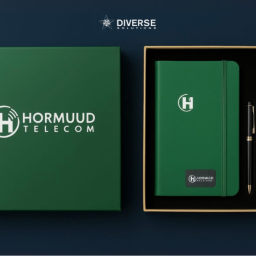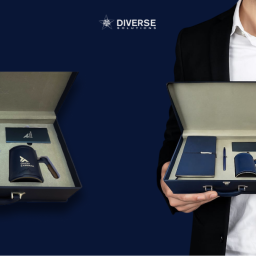
In business, success is built not just on transactions—but on trust, loyalty, and relationships. One of the most effective yet often underestimated tools for strengthening those bonds is corporate gifting. But what makes a well-timed gift so powerful in a professional setting? The answer lies in the psychology of giving.
Understanding the psychological mechanisms behind gifting helps businesses design more impactful strategies that resonate with both clients and employees. As the practice of corporate gifting continues to evolve in places like Singapore, its effectiveness is increasingly being backed by behavioral research.
The Science Behind Gift-Giving
Gift-giving is an ancient human tradition tied to social bonding. According to the American Psychological Association (APA), giving activates brain regions associated with pleasure, social connection, and trust. When done correctly in business, it fosters goodwill, increases loyalty, and positively influences perception.
A study published in the Journal of Consumer Research found that recipients often perceive thoughtful gifts as signals of effort and intent—key traits that translate well into trust-building in business.
-
Reciprocity: The Foundational Principle
The concept of reciprocity, rooted in social exchange theory, is central to business gifting. When a company gives a gift—whether it’s a holiday hamper, a custom notebook, or a wellness kit—it activates a subconscious urge in the recipient to reciprocate, often by maintaining or strengthening the relationship.
Harvard Business School research suggests that “acts of generosity,” even in professional contexts, can improve long-term outcomes by influencing future behavior and collaboration.
-
Emotional Resonance and Memory
A meaningful gift taps into emotions, and emotion drives memory. A branded mug may be useful, but a personalized hamper tailored to a client’s preferences or an employee’s cultural background creates an emotional imprint. According to Forbes, businesses that evoke emotional reactions in their interactions enjoy higher customer loyalty and retention.
In Singapore’s multicultural environment, culturally sensitive gifting during Deepavali, Hari Raya, or Chinese New Year enhances this emotional resonance, signaling respect and inclusion.
-
Social Proof and Brand Perception
Corporate gifting can also influence how others perceive your brand. Well-curated gifts become social signals, communicating values such as professionalism, generosity, and attention to detail.
In fact, research from Stanford University shows that when people observe brands engaging in personalized, thoughtful actions, they are more likely to form positive assumptions about that company—even if they are not direct recipients of the gift.
-
Employee Motivation and Recognition
Beyond clients, corporate gifting also holds psychological weight within the workplace. Recognition is a critical component of employee motivation. According to a 2022 Gallup-Workhuman report, employees who feel meaningfully recognized are:
- 4x more likely to be engaged,
- 5x more likely to see a path for growth,
- and 5x more likely to feel connected to the company culture.
When tied to milestones—like onboarding, project completion, or anniversaries—gifts signal that employees are seen and valued. This leads to increased morale, lower turnover, and stronger team cohesion.
-
The Importance of Intent and Authenticity
Intent matters. Generic or overly promotional gifts can backfire, coming across as transactional or manipulative. However, gifts with genuine thoughtfulness—those that reflect the recipient’s preferences, needs, or achievements—build trust and deepen relationships.
Psychologist and researcher Dr. Michael Norton of Harvard Business School found that giving a personalized gift (even a small one) builds more trust than a higher-value gift that lacks personal relevance.
Key Takeaways for Businesses
- Be Personal: Use personalization to show that the recipient is more than just a name on a list.
- Time It Well: Align gifts with key events, achievements, or holidays.
- Respect Cultural Norms: In diverse workplaces like Singapore, cultural sensitivity is essential.
- Think Beyond the Gift: Include handwritten notes, customized packaging, or follow-ups that extend the experience.
Conclusion
Corporate gifting is not merely a marketing tactic—it’s a strategic, psychology-backed tool for relationship-building. By understanding the science behind giving, businesses can elevate their gifting programs from obligatory gestures to memorable experiences that create lasting impact.
In today’s competitive landscape, especially in culturally diverse hubs like Singapore, the companies that master the art and psychology of gifting are the ones that build the strongest, most enduring relationships.
For more information and to explore our offerings, visit Diverse Solutions Singapore.
















